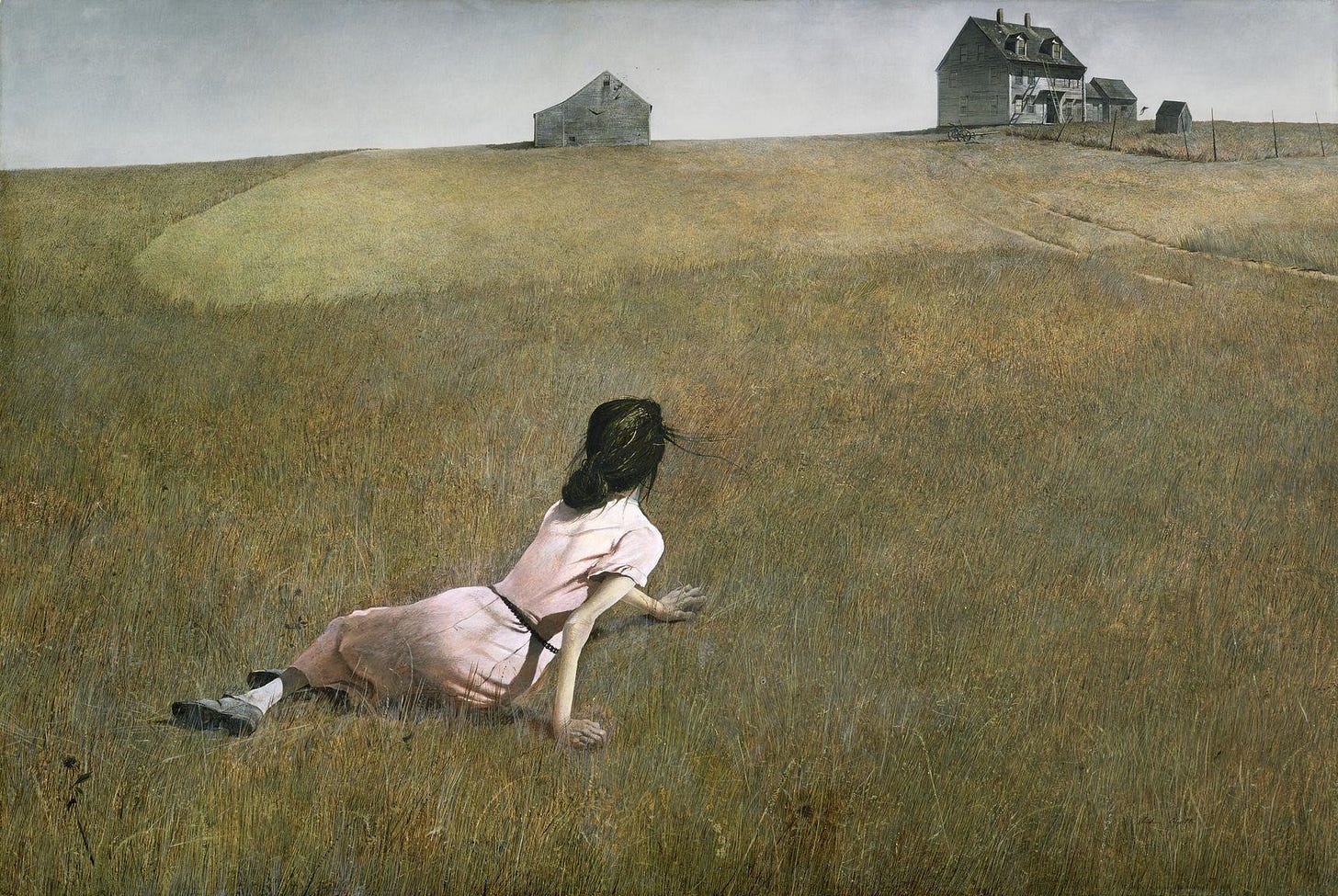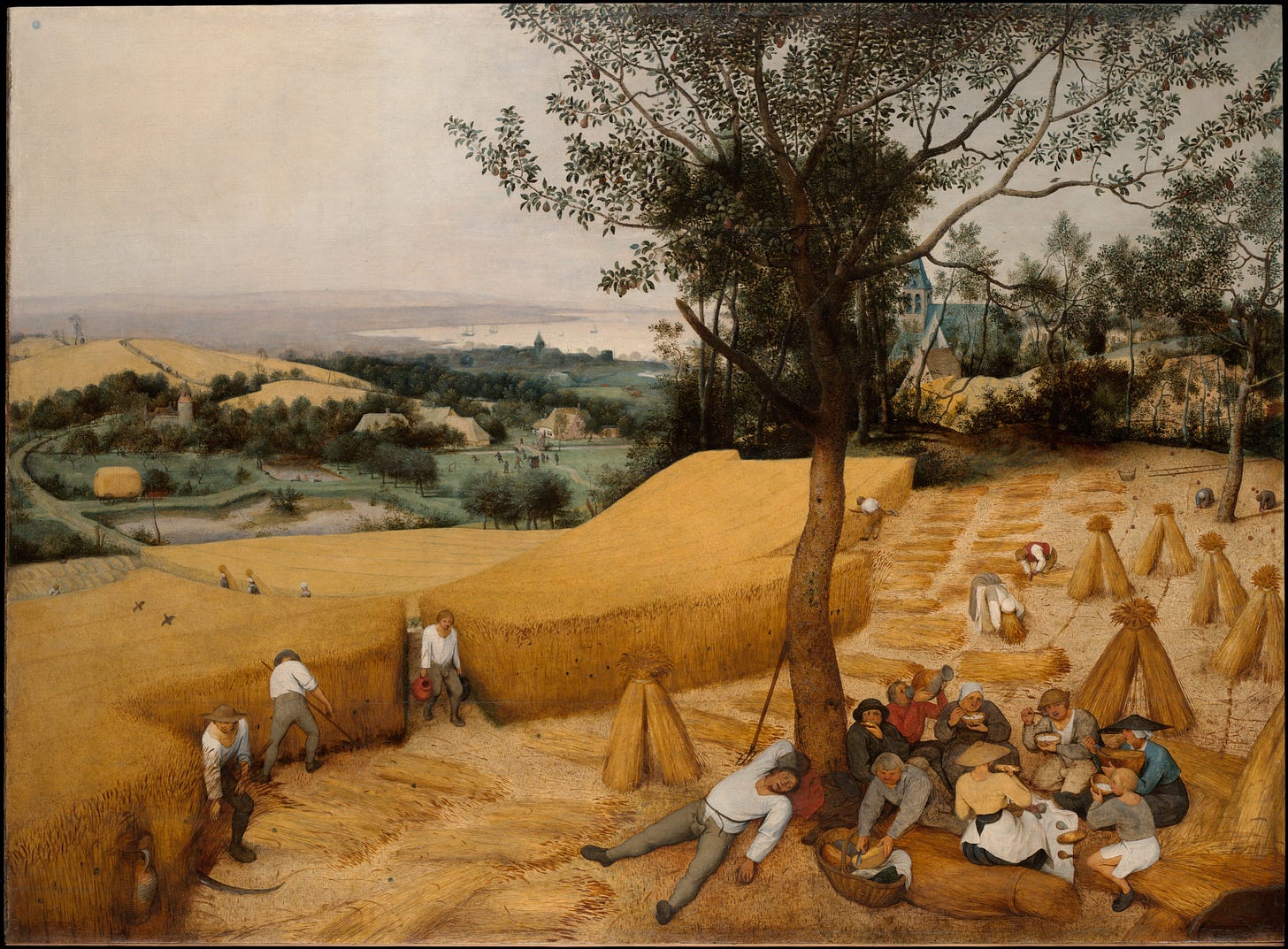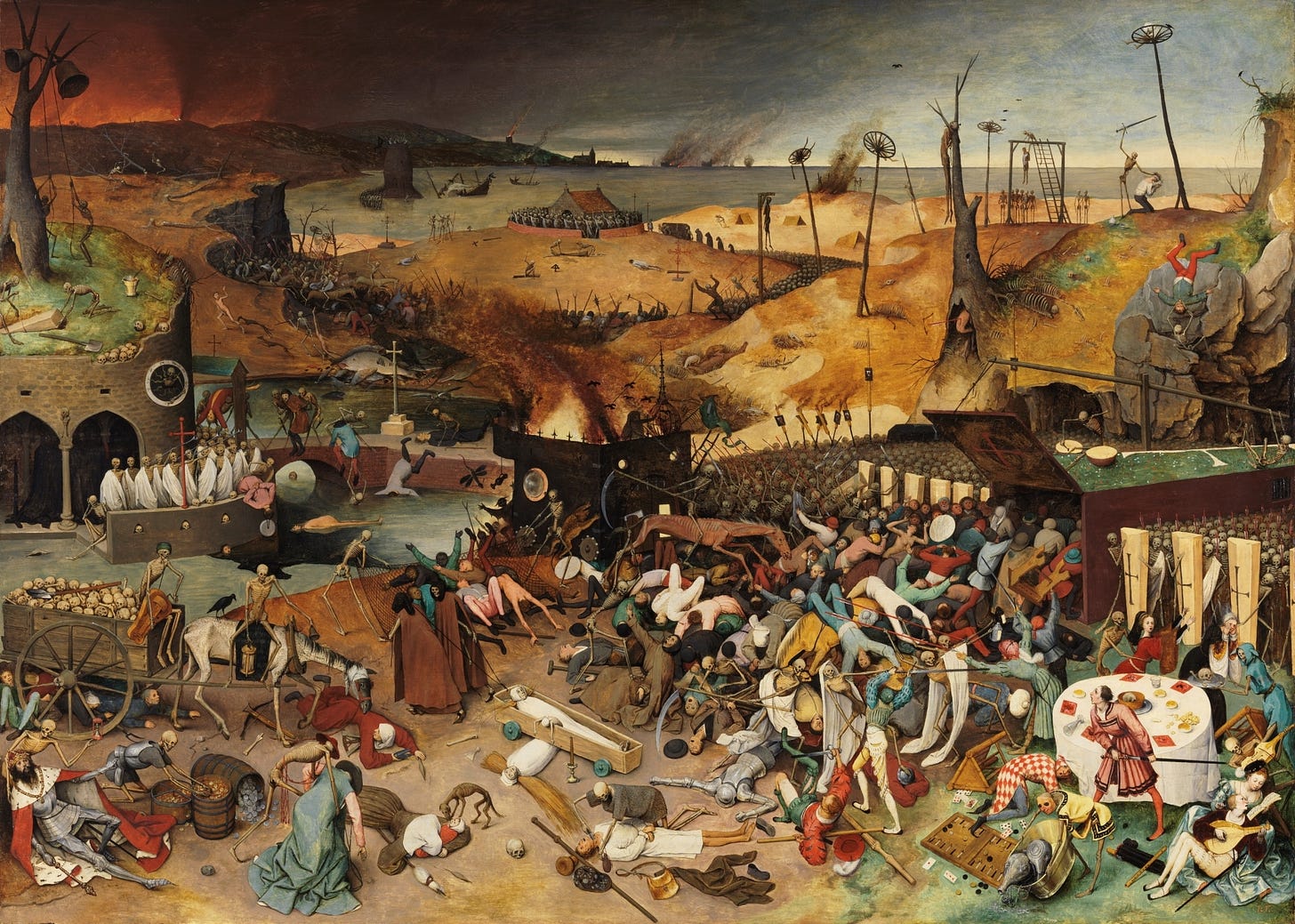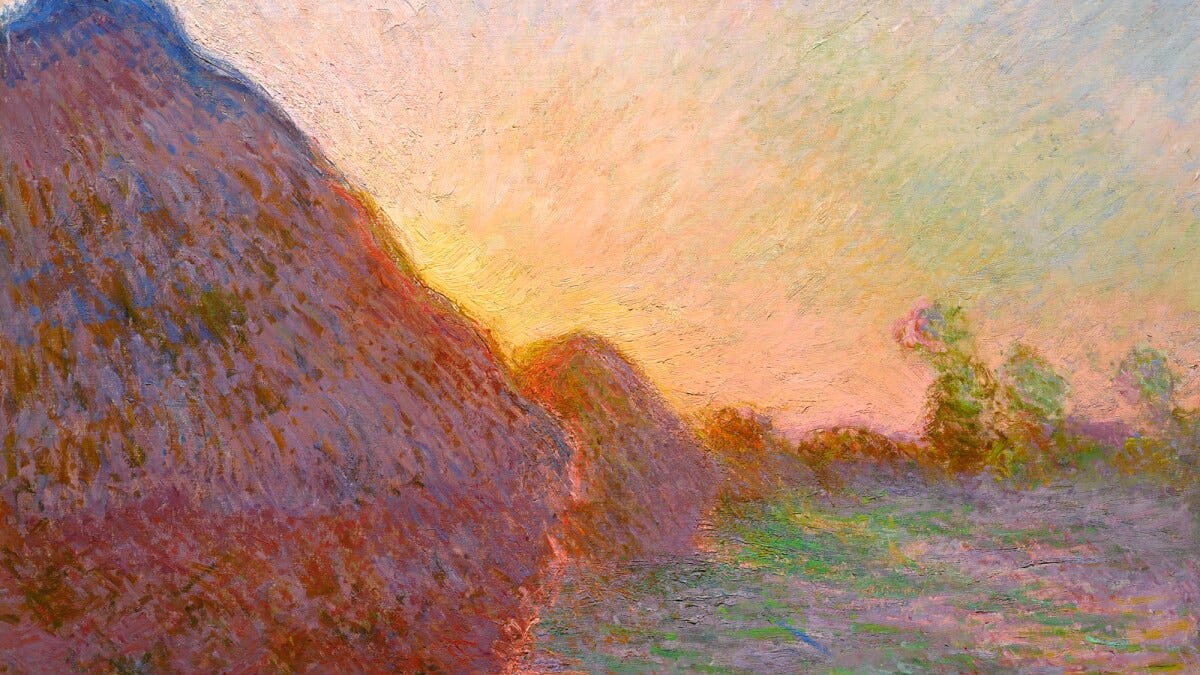Mary Oliver once famously posed the question: "Tell me, what is it you plan to do / with your one wild and precious life?"
The line comes at the end of a poem about our souls and the natural world, in which the speaker uses the moment a grasshopper lands briefly in the palm of her hand to wonder about the nature of prayer.
Ultimately, Oliver seems to suggest that rather than seeking meaning from a religious notion of some floaty bearded man in an imagined paradise beyond the sky we should seek it from the actual world around us, the sensations that world causes in us, and perhaps even from the irrefutable fact of our own mortality.
This poem and its beloved last lines came back to me recently, and I heard them in a way I have not before.
When I was younger, living in the back of my pickup truck and fishing the rivers of Western Montana, I understood it as a poem about solitary spiritual seeking.
But now I hear it as a call to communion, an insistence on the necessity of connection against the chaos threatening us.
There is something frightening happening in the world: we have allowed ourselves to become siloed off from one another.
Into our jobs and lives and furies, into our particular obsessions.
The environmentalists worry about the environment, the journalists worry about the state of journalism, the politicos worry about politics, and the artists worry about the arts. And in our down time we submerge ourselves in our games and social media feeds, our online betting platforms and the niches of our hobbies.
At a glance, this can seem simply to be “modern life.”
But it’s vital to understand that this siloing is not accidental. It is the precise aim of the world in which we live.
One of the primary goals of the monstrosity that is the internet is to reduce us to atomized individuals who relate to one another and the world through the screens of our devices.
As a wise old man once said, we now carry our bonds to society in our pockets.
If we speak to each other through our phones and computers, we must pay for that privilege.
If we find out about the world through our computers and tablets, our interests can be tabulated for the purpose of selling us products. Our data can be collected and sold, our attention spans can be reduced to the point to which we need ever-increasing amounts of (monetized) distraction to keep us entertained.
Most horribly, we can be manipulated with the ease of a five-year-old watching a professional magician, because what we are watching is not reality.
It is a creation.
(If you haven't read Stuart Thompson's NYT piece laying out how clearly this last bit is happening, I would do so. Although I would recommend chewing some anti-anxiety meds first.)
I have no idea who first uttered the words, “divide and conquer.” Probably some paleolithic war chief laying out plans for the sacking of someone else's village, at which point his top lieutenant must have turned to him and said, in awe, “Damn, Grog, that's a pithy phrase.”
But wherever they came from, these words are absolutely true, and if you want proof of this, look no further than your own face in the last selfie you took, because it’s happening to us.
Mary Oliver may have been writing about our spiritual relationship with nature, it's true. But anything approximating any kind of relationship with nature, not to mention the preservation of that fast-dwindling miracle we so loosely call “the health of the planet,” is dependent on a healthy political system.
By this I don't mean a political system in which liberals win every battle – although I'd be happy to see that happen – but one in which people of any political stripe feel they have the basic democratic rights that we have all, for so long, taken for granted.
Because if people do not feel they have some say in the society in which they live, they sure as shit won't have the mental energy to care about the fate of jaguars along the southern border of the United States or corals bleaching away to nothing in the South Pacific.
Do you doubt that these democratic rights are currently in terrible peril? If so, please listen to Senator Chris Murphy – who I'm proud to say was once a classmate of mine – explain why we should be alarmed. Here's a transcript of the podcast on which he does so; the link to the audio is at the top of it.
In turn, the health of our politics is very much dependent on the health of our journalism. So is our journalism healthy?
I’m glad you asked, because no, it is not.
From the Washington Post and L.A. Times’ decision to reject the deeply American tradition of independent media outlets offering independent assessments of political candidates before an election, to ABC News’ decision to pay Trump $15 million to prevent him from being mad at them, things are not peachy.
Matt Pearce's piece on this, "Journalism's Fight for Survival in a Post-Literate Democracy," is another thing that's very much worth your time if things like democracy and literacy and journalism are your jam.
And beneath all of this runs the arts.
If we do not have a healthy arts, then little else matters. We will find ourselves in a world in which even our joy is used against us for the purpose of turning us into content-consuming drones that exists simply for the purpose of making money for the already wealthy.
But…can this already be happening?
Dear reader, of course it is.
As Liz Pelly put it in a recent article about Spotify's quest to turn all music into cheaply-produced meaningless sludge: "A model in which the imperative is simply to keep listeners around, whether they’re paying attention or not, distorts our very understanding of music’s purpose"
It is not, or not only, your or my little castle that is under assault.
The environment, journalism, the law, politics, the mental health of our kids, the question of immigration, the issues of foreign policy, the arts: all of this is a part of a larger web of connection and creation and thought and debate that we call our culture.
It’s this culture that is under attack, from outside, inside, and all around.
The proximate cause of this is Donald Trump and his minions. But the longer-term causes come from the fact that the people the top of this maniacal apparatus have gotten very, very good at manipulating basic human drives like fear, greed, and the lust for recognition. And they have access to the greatest tools ever invented for this manipulation.
Thus the YouTube monetization of the charlatans who promise you will find meaning if you discover some domineering masculinity in yourself, or the astonishing lobbying power of an association that believes the most important thing in the world is the ability to buy an implement that will allow you to kill another human being, or prevalence of the cancer-like ideology that you should own a massive house and a shiny car because that proves, unarguably, that you are a better person than your neighbor, because your house is bigger and your car shinier.
Thus the reduction of human creation to content, sports to gambling, the law to a lever, journalism to propaganda, art to widgets.
It’s all packaged as meaning, or entertainment, or empowerment. But the real purpose is profit.
Which brings me back to Mary Oliver.
Because what we need to stave off these slobbering idiots is a coalition.
A coalition of folks who can look around and actually see one another.
Who can attend to the world around them as it is, rather than as their screen tells them it might be.
Who can say that to be idle, to sit and think, to commune with some other being in this world as small as a grasshopper or as magnificent as a human is more important than making that next hundred thousand bucks.
What we need is a coalition of the living.
To be alive is not to be anesthetized. And to be un-anaesthetized is to thrill in a vibrant culture, a vibrant world full of vibrant ecosystems.
It is to demand a true democratic politics.
It is to insist on a journalism in which people can make a living learning about the things that happen to us all and then share that learning; it is to insist on a law that is focused on – hold onto your seats, because this is a shocker – justice.
To be alive is to demand a world free of authoritarian aggression. It is to be, in a very, very non-libertarian sense, free. For as Timothy Snyder puts it, "Freedom is the value that makes all other values possible."
It is to be surrounded by a culture in which people laugh and go on walks in the woods and tell stories and sing songs to one another to help each other understand what it means to exist on a strangely-living rock hurtling endlessly around the sun.
To be really alive is many things. But it's not easy.
So put on your hard hats, folks. Find your sturdy boots and clean off your reading glasses. Get ready for a long, arduous journey. Dig up your poetry and your philosophy. Find some good journalists – no, kids, YouTubers and TikTok blatherers don't count – and some good scientists, and maybe a politician or two with actual human decency; find some musicians and some artists and a few movies, and come join the coalition.
You will find, I am afraid, that there are fewer of us in it than you would like. But actual existence is far more interesting than this fake shit people are sucking down right now, and our numbers will grow.
As Mary Oliver would put it, what else are you going to do with your one wild and precious life?








Right there with you my friend
I'm delighted Thoughts Mostly About Film is back and I'm grateful to be part of your coalition.